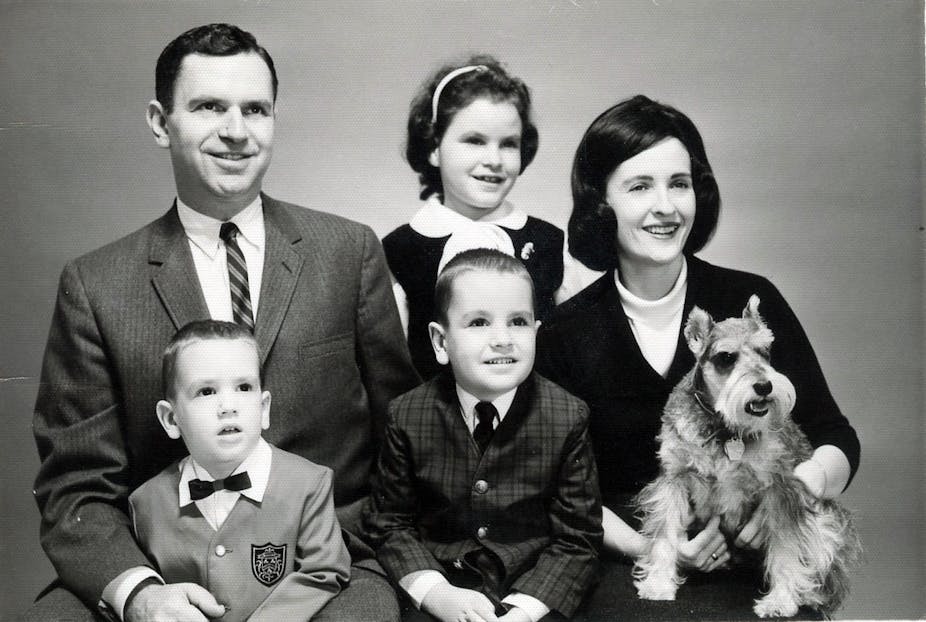Whether we’re reading about family studies research in Women’s Day , Scientific American or the Journal of GLBT Family Studies, most of us look for evidence that will help us understand where we sit along the continuum of functional and dysfunctional family systems.
Unfortunately, research doesn’t often give us answers about what to do with the evidence we find. But that doesn’t stop opinionators, policy-makers and psychologists lining up to tell us how research evidence should shape our lives, particularly when it comes to our families.
The most recent example of this is the flurry of discussion over decades-long research studies that convincingly point to evidence that children do better with two parents who are married. In a simple interpretative two-step, author and Manhattan Institute fellow Kay Hymowitz distilled this data into a sound-bite worthy formula: single motherhood is harmful for children.
In a recent article in The Australian, psychologist Bettina Arndt, heartened by Hymowitz’s recent Australian visit, and keen for us to understand the importance of these new findings, paves a similar ethical shortcut by urging us to stop ignoring what she refers to as “the casualisation of families”.
As an example of such “casual” families, she uses the hugely popular Offspring TV series. She waxes both indulgently and patronisingly about the Proudman family, describing how:
as they romp through these messy unions, they are endlessly creating families. Offspring are born in all manner of strange circumstances, to parental relationships that usually fall apart.
Like many moral interpreters of family studies research, including Hymowitz, Arndt makes a tidy analogy between separation and dysfunction. It’s a cheap moral shot, and far from an evidence-based ethical conclusion.
Finding that children do better in families with two married parents tells us about the advantages of this family structure for children in our current social system. What it doesn’t tell us anything about is why this is true or what we can possibly do about it.
Arndt and Hymowitz, like many psychologists, opinionators and policy-makers, have distilled complex family studies research into a series of simplistic, unscientific and punitive ethical shortcuts to the question of how to live well in a family. It’s both a gross misuse of the evidence base and a stunted template for ethical decision-making. Squeezed into a tabloid headline, the message reads: Face Facts: If you’re a parent and you’re not married, your family is dysfunctional and your kids are suffering.
The ideal of the perfect family lurks not so quietly underneath these simple summaries of complex interpersonal and social life. It creates a kind of ethical vacuum where the question of competing factors and conflicting interests becomes invisible. In order to maintain an ideal of perfection, family studies research can be used as a kind of blunt instrument, forcing individuals to bear the brunt of more complex social forces alone.
It’s a kind of terrible fairytale bargain where we’re told to ignore the powerful structures at work in our lives – and are instead encouraged to make a simple exchange of our personhood for safe passage through the minefield of family morality.
It’s also attractive and anxiety-reducing to contain complex social data into individualistic categories such as lifter and leaner or married and separated. But the reality, in practice, is that there is very little we can say in either the therapy or the policy room that can contain the enormous complexity of family life.
In a single family there can be many competing interests driven by economics, gender, genetics and interpersonal styles, to name a few. In the case of family separation, a relationship that was “good enough” for the children may have been deeply inequitable for the adults. At what point can you make the call that staying together for the children is the ethical choice?
Whether it’s in the policy hub or the therapy room, we need to ask ourselves the same question before we make ethical pronouncements that will directly impact peoples’ lives:
Do I know this to be true?
Of course there are many things we know to be true about families. We know that gender inequality is part of the recipe for family violence. We know almost one in five Australian women have experienced intimate partner violence. We know that when children are the witnesses of this violence it has a devastating and long-term impacts on them. We know that children who live in poverty suffer at every level of their existence. And we know that between 40% and 60% of women will live below the poverty line following divorce.
This tiny snapshot of research into poverty, disadvantage and family violence gives us some idea of the incredible complexity of making ethical decisions about family structure in therapy and policy work. Apart from questioning carefully what we know to be true, we also need to ask what role research can play in any given context, and if there are competing interests, we need to answer the question of who is most vulnerable.
Family studies research can offer incredible insight into the impact of how we live together in the world but it can’t offer a blueprint for the perfect family structure. We can’t ignore solid research evidence, we just can’t pretend it’s a recipe for living. It’s never a simple formula of research in, public or personal policy out.
When we shirk the hard work of grappling with moral complexity in an open and fearless way, we do a kind of violence to both people and to science. Ethical thinking and practice always require exactly those two ingredients: thinking and practice.
This is part of a series on public morality in 21st century Australia. We’ll be publishing regular articles on morality on The Conversation in the coming weeks.

